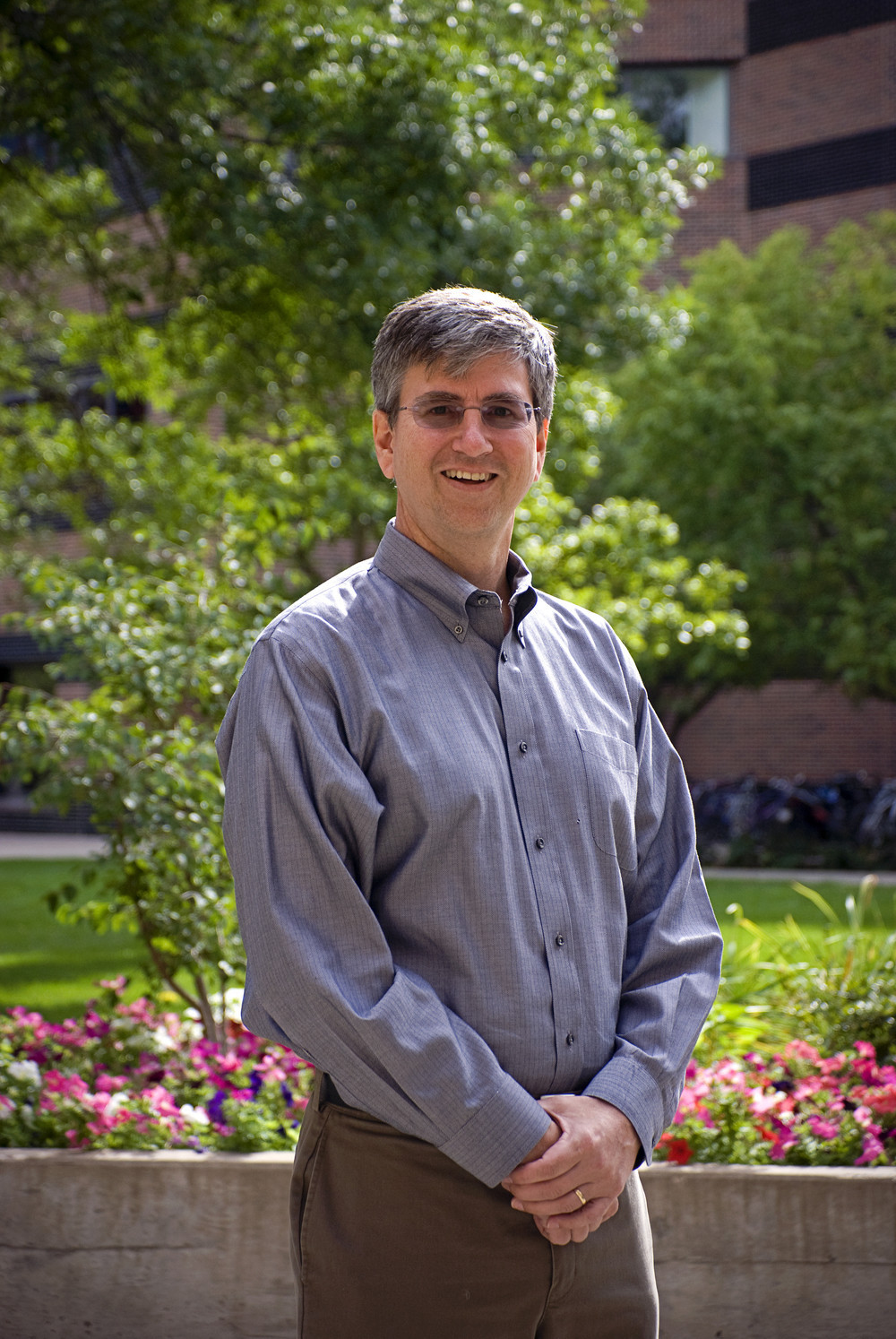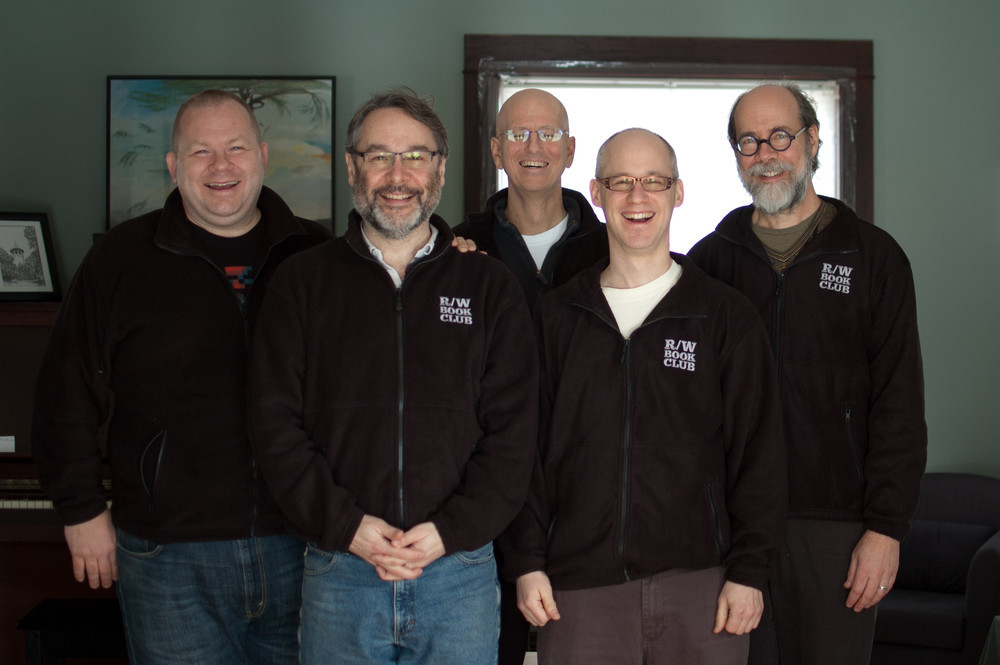Goodbye to my friend, John Riedl

Three years ago my friend, mentor and former professor John Riedl shared the news with our book club that he had been diagnosed with cancer. Melanoma. He spent the last three years fighting it. He did it all right, as the scientist he was. He was able to try never-before tested treatments. He adopted a vegan diet. He was strong and vital. He was optimistic, as always, and we were all optimistic for him. In the last month things got much worse very quickly. Yesterday I joined well over two hundred others in celebrating his life and spirit at his funeral. It was a perfect ceremony for a man that was loved and admired so much. I would like to share the story of how I came to know John.
Hackers v. Crackers
I started at the University of Minnesota in 1990. So did Dr. Riedl. 1990 was his first year as a professor in the Computer Science department of the Institute of Technology. At some point during that year the Minnesota Daily wrote a big exposé article on how bad hackers were. They were supposedly breaking into every computer system around, stealing credit cards and doing illegal things. I was fairly fresh from reading Stephen Levy’s fantastic book Hackers and I took great offense at this article. See, hackers are exceptional software developers (aka coders). People that break into computers? Those are crackers. A completely different type of software person focused on compromising systems, both technical and human.
I read this article and it got me all worked up so I sent a letter to the editor telling the Daily that they got it all wrong. Their hacker article was wrong and should have used the term cracker. This is clearly a semantic battle that never was. I don’t think anyone used the term cracker for people that broke into systems much after that point or even before, but I was principled.
The day after that letter ran I remember getting a phone call in my Frontier Hall dorm room. I picked it up and the guy introduced himself as Dr. Riedl, in the computer science department. He mentioned that he and Dr. Carlis were going to write an opinion piece on the article the Daily had published and wondered if I would mind if they quoted me. I have no idea why he thought he needed to ask, but he did and I stammered out “Sure” at some point. We chatted briefly on other University stuff and he ended by saying that “If I ever needed anything, feel free to stop by.” I said thanks and looked forward to reading the article.
Losing Unix Access?
A while after the article I was facing a problem. In 1990 when you took a Computer Science class you were given an account on the Unix workstations. However, that account was provisioned for the class you were enrolled in. So, I had an account but it was going to disappear when the quarter ended.
This was traumatic for me. You see, I had discovered Unix and it was like an entirely new world of technology had opened up. Actually, it wasn’t “like” that, it specifically was that! I had discovered IRC and was chatting with people around the world. I was FTP‘ing to servers at other Universities. I was building software on my own. This was amazing! And it was going to go away when my class ended. So, I went to see Dr. Riedl.
I went to his office and explained my predicament. His response? He put me on his graduate research team. This is the team that eventually became GroupLens, but I don’t think it had that name at that time. I went from hoping to get an account somehow to getting 24-hour access to a lab with dedicated machines, and a permanent account on a handful of SunOS workstations. I was in heaven! I was also a clueless freshman that couldn’t do much beside help with testing the stuff the grad students were working on. While my friends were going to parties on the weekend, I was heading to the graduate lab in the CSci building to explore the systems and software, and very importantly the pre-web Internet. I spent hours there just learning and learning. (To be clear, access to the computer lab was clearly not the only thing that kept me out of the social scene on the weekends. 🙂)
Go and Build Things
I learned so much in the CSci lab and loved being able to ask grad students questions that probably drove them a little crazy. It turns out I liked that a lot more than going to my other classes. Both Dr. Riedl and Dr. Carlis recognized that I knew the technology, but didn’t seem to be ready for all of the college experience. They both opened the door that maybe I should go and work in industry for a while. Maybe I would come back to the University, or maybe I wouldn’t. And that is what I did, and I never did end up coming back.
I lost touch with Dr. Riedl for a while. To be fair, we were both crazy busy. He took a break from the University to start NetPerceptions and had a wild ride. I was busy building BigCharts and then growing MarketWatch. Years later, after he had returned to the University I reached out to get lunch and we had a great time catching up. We stayed in contact for a long time after that. He graciously invited me to speak at the University of Minnesota a number of times, including being the keynote speaker at the Computer Science departments annual open house. He also gave a nice quote for me when I received the Forty Under 40 award.
Book Club
In late 2007 I got an email from him about a book club. 17 years from when we first met, wow. He mentioned that he was part of this small book club of geeky guys that liked to read about technology topics, and strayed off topic as they wished. Honestly, I wasn’t much of a reader at the time but the idea of reading books with a group that included John Riedl was far too much to pass up on. I joined without hesitation.

John was a voracious reader I realized. That shouldn’t have surprised me given his scholarly and scientific background. He was also a great person to discuss books with, as are Tom, Erik and Dan, the other members of the club. I count myself truly lucky to have shared a book club with John for 6 years. I’ve come to recognize it as a unique experience. Reading informs oneself, and reading together over the course of many years, brings you together and allows for raucous and challenging conversations. As Tom said in a reference to the club and John, “For years to come I’ll read something and think ‘John would really like this.’”
The world is worse off without John here. He was a brilliant man, mentor and teacher who had such an impact on my life. And you know what? I wasn’t alone. I’ve heard many stories like mine of people who’s lives are substantially better due to their interactions with John. At his funeral, the common refrain was how much of a mentor he was. My condolences are with his wife Maureen who I got to read a handful of books with as well in our members + spouse meetings, and his children Eric, Karen and Kevin who I really only know through the annual Christmas letter, but all seem to be incredible individuals in their own right. No surprise there.
Related links: